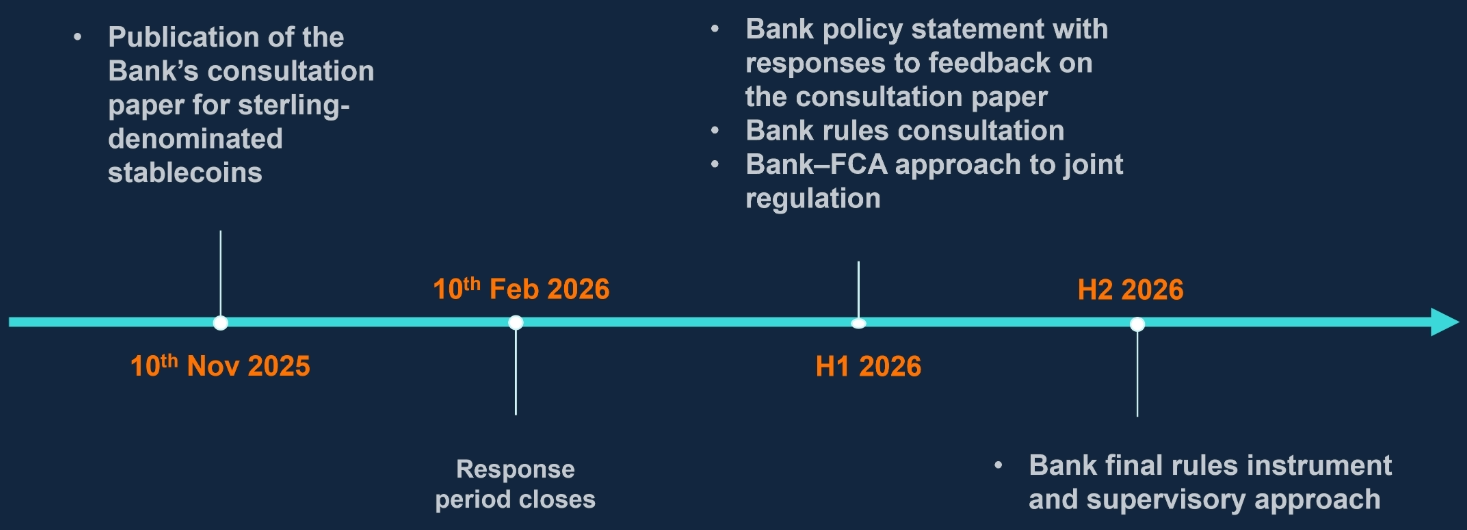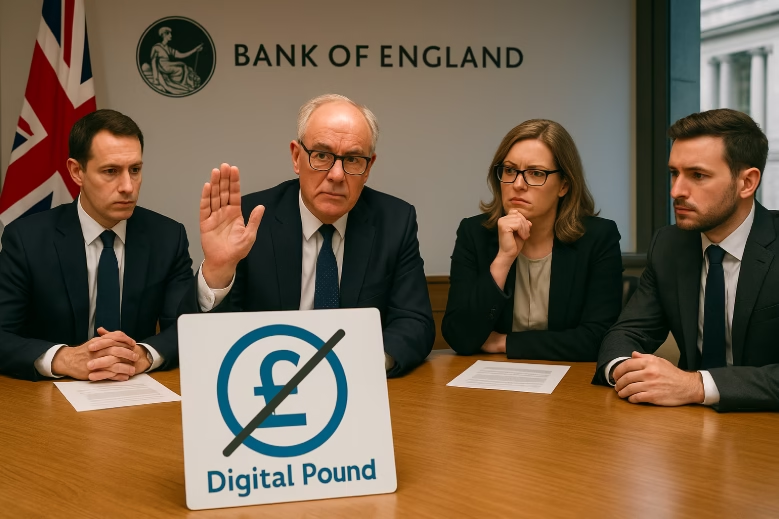The Bank of England has proposed capping individual stablecoin holdings at £20,000 and requiring issuers to hold at least 40% of backing assets in central bank reserves, setting some of the world’s strictest rules for digital currencies used in payments.
The consultation published Monday outlines how Britain plans to regulate ‘systemic’ stablecoins—those widely used for transactions—under central bank supervision starting in 2026, while leaving other crypto tokens under lighter Financial Conduct Authority oversight.
The boe stablecoin consultation is significant because it sets the timeline, the core requirements (such as backing assets and holding limits), and a clear message: the UK intends to regulate stablecoins as money-like instruments. It also signals to crypto investors that a major jurisdiction is moving from talk to action.
Key proposals in the BoE stablecoin consultation
The consultation paper includes several central proposals:
- Issuers of systemic stablecoins would be required to hold at least 40% of their backing assets in unremunerated accounts at the BoE, while up to 60% could be held in short-term UK government debt. In transition, issuers moving from the FCA regime could hold up to 95% in government debt for a period.
- Temporary holding limits: individuals would be limited to holding about £20,000, businesses up to £10 million, with exemption regimes for entities with operational needs.
- Issuers deemed “systemic” by HM Treasury (HMT) would be subject to BoE oversight; non-systemic stablecoins would fall under FCA solo regulation.
- The consultation is open until 10 February 2026, with final Codes of Practice expected later in 2026.

Deputy Governor Sarah Breeden said:
“Today’s proposals mark a pivotal step towards implementing the UK’s stablecoin regime next year. Our objective remains to support innovation and build trust in this emerging form of money.” — Sarah Breeden, Deputy Governor for Financial Stability, Bank of England
Implications for crypto investors and the payments ecosystem
For crypto investors and payment-issuers, the boe stablecoin consultation signals both opportunity and caution. On one hand, the clear regulatory horizon offers a pathway to legitimacy for stablecoins in the UK: issuers that align with this regime may access a large payments market with defined rules.
On the other hand, proposed caps and backing requirements could raise cost and complexity for stablecoin programmes.
The boe stablecoin consultation also means that stablecoins used for non-payment purposes (such as trading or DeFi) may continue under lighter FCA regulation, but the regime signals where the BoE draws the line between payments-money and speculative tokens.
Moreover, the timeline is critical: by targeting final rules in 2026, the BoE is giving the industry time to adapt but also signalling that delay is not indefinite. For stakeholders, stepping into the UK market will require planning for transitional requirements, reserving for capacity to hold certain assets, and compliance readiness.
What to watch and next steps
As the consultation proceeds, market participants should monitor these key elements of the boe stablecoin consultation:
- The responses from industry during the consultation window (open until February 2026) and whether the BoE alters its proposals.
- How the holding limits are addressed, both for individuals and businesses, and whether exemptions prove workable.
- The designation of “systemic” stablecoins: which tokens qualify, and how many fall under BoE oversight versus FCA only.
- The interplay with global regulation: how the UK’s regime aligns with frameworks in the U.S., EU and other jurisdictions—particularly as many stablecoins are cross-border.
- The timing of implementation: when the Treasury and BoE publish the joint approach document and final Codes of Practice expected later in 2026.
For crypto investors, the boe stablecoin consultation offers a moment to reassess stablecoin risk, issuer credibility, and regulatory exposure in the UK market. For payment platforms and issuers, it underscores the urgency of aligning technical and compliance infrastructure for a regulated future.

Leave a Reply